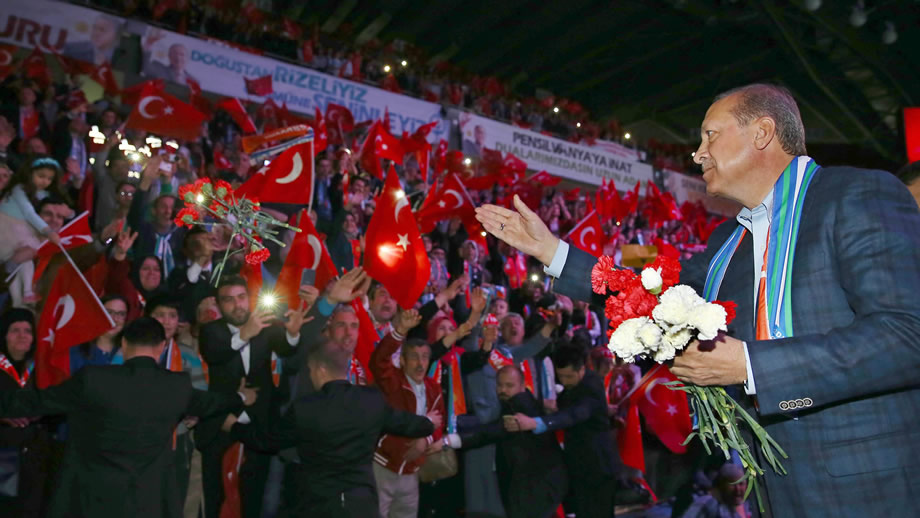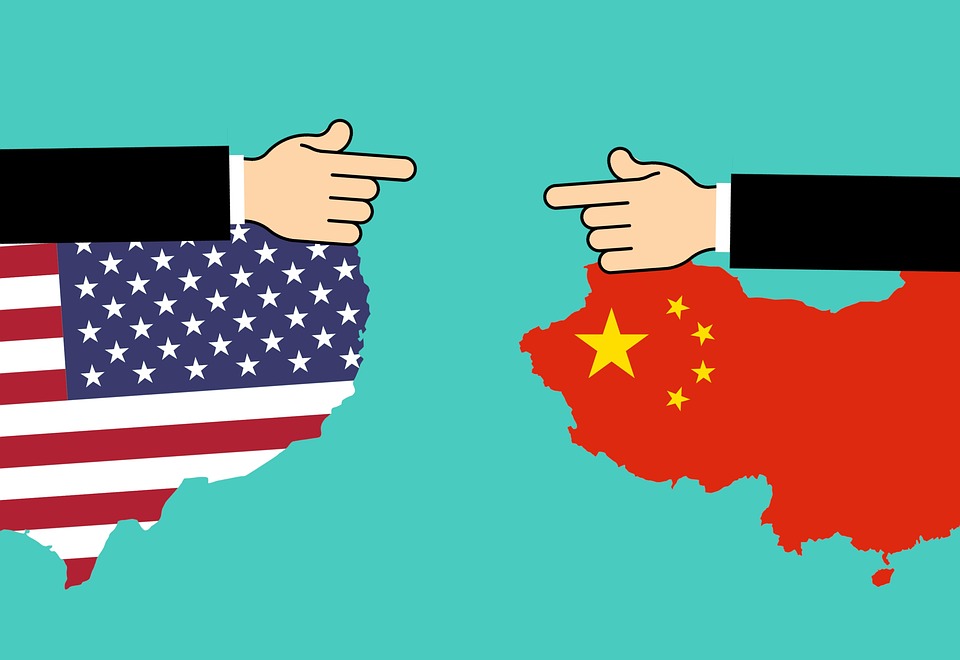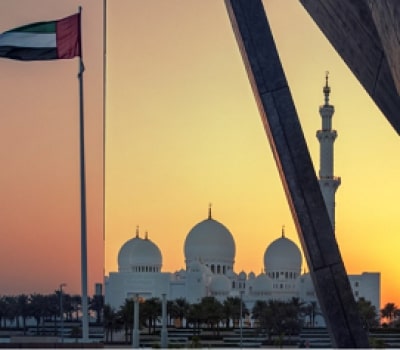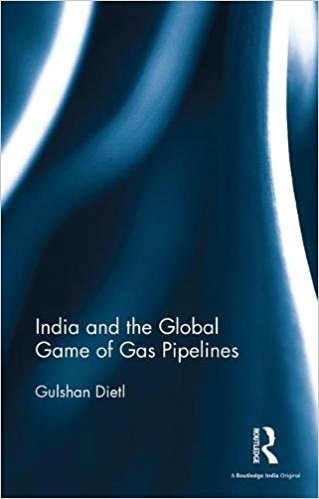Breaking
- MENU

On 6 May,Turkey’s Supreme Electoral Council (YSK) annulled the results of the local electionsfor the post of the Mayor in Istanbul held on 31 March 2019.The council is favourably disposed towards the Justice and Development Party(AKP) and ordered a re-run of the elections upon “extraordinary objections" after the ruling party made several previous appealson the grounds of electoralimpropriety. The election for mayorhas been the most contested in thedecade and atotal of 12 parties contested it. This is the first local electionssince the 2017referendum that adopted the presidential form of government in Turkey. Ekrem Imamoğlu from the opposition Republican’s People Party (CHP) won the elections by a slim margin of 13,729 votes.The ensuing protest resonated with the sound of people banging pots and pans that were reminiscent of the public anger six years ago against the government that sparked off the Gezi Park protest.
The reason given for the re-run was the impropriety in the appointment of certain electoral committees. However, critics point out that elections were simultaneously held for the Mayor and for the District and Municipal Councils.Hence cancelling one out three votes polled on the grounds of procedural impropriety is illogical.The AKP is also split on the issue. Some members felt that a re-run would not only sabotage Turkish democracy but also threatens the party's future.
In the local elections, the ruling party lost five out of seven metropolitan cities including Ankara and Istanbul, the political and financial capitals, respectively. The ruling party conceded defeat, which implies that the opposition would be in control of cities which constituted 65 percent of the GDP and nearly half of the population.
But the loss of Istanbul is a major blow as President Recep Tayyip Erdogan has been the mayor of Istanbul before being propelled to the national stage. He is known to have said in 2017 that if AKP loses Istanbul, it would lose Turkey. Istanbul is Turkey’s economic powerhouse and its municipal budget is bigger than some of the national ministries.Hence, the party's defeat also signals the end of nearly a quarter of a century of control of Erdogan's 'political family' over Istanbul's resources and municipal contracts.
Soon after the YSK decision, the Turkish currency Lira plunged to its lowest level since last September. The economy is already in recession and can hardly sustain the prevailing uncertainty. Turkey’s failure to get a waiver from the Trump Administration on oil imports from Iranwould increasefuel prices. Inflation of about 25percent isalready affecting the economy and the common man's budget. Turkey gets about 47 percent of its oil imports from Iran at a cheaper rate. Through local elections, the citizens chose to deliver a strong political statement as a reaction to their economic troubles. The voter turnout was nearly 85 percent which pales many western democracies.
The opposition parties were able to streamline and put up an effective coalition than they did in the June 2015 general elections. They were able to monitor the ballot boxesbetter on the polling day.People’s Democratic Party (HDP) did not field candidates in a few places to help the coalition.The opposition also fielded candidates who were able to reach beyond their core support base and breach more conservative AKP voters.
Imamoğlu’s ability to put an all-encompassing narrative in highly diverse and politically divisive segments of the city andhis attempts to reach out to Erdogan thisJanuary to discuss the future of Istanbul have been received favourably. Kaftancioglu, provincial chair to the CHPis a doctor, motorcyclist and feisty politician who ran a campaign against the AKP.Unintimidated, she used social media to politically mobilize the voters by giving hard facts about the unequal distribution of wealth, limited access to health care and education, rising unemployment, drug use, minor abuse, and increased social and political marginalisation of women.This is significant as women’s participation and voice in Turkish politics have been vanning for some decades.
The large voter turnout and defeat of candidates of the AKP who were Erdogan’s ministers are more of a referendum on the President himself. It was emblematic that the Turkish people have not given up on democracy even when there has been a systematic erosion of its ideals and practices. As soon as the election results for the Mayor in Istanbul was annulled, there has been palpable defiance in the air, and it looks that the people were ready for a showdown and Turkey is heading for yet another political crisis. However, Imamoğlu gave an uplifting message to his supporters to re-elect him again and the CHP has ruled out a boycott of the re-run of the elections scheduled for 23 June evoking the confidence among his supporters and in the electoral process.
Therise of street politics in the face of creeping authoritarianism has galvanized people's resistance in several ways. Six years ago, a protest by a small group of environmentalists in the Gezi Park snowballed into millions pouring into the streets in a nation-wide demonstration against Erdogan with a reverberating chant, “Everywhere there is Taksim, Everywhere there is resistance." After, enduring nearly two years of intensive crackdown by the regime after the failed 2016 coup, the people sought to resonant their resurgent resistance with other waves of resistance and global movements.Last December, in tandem with the 'yellow vest' protests in France, thousands from all over Turkey protested economic hardships with slogans “work, bread and freedom” and Haziran(meaning Junewith reference to the Gezi movement).On 8 March, the International Women Day, both secular and religious feministsjoined to protest rising violence against women with such an enthusiasm that police had to dispel them with tear gases.The protesters, "We are not silent, We aren't scared, We are not obeying."
Despite, censorship and Islamist nationalist discourse unleashed by the conservative government to shape artworks, Mehmet Güleryüz, Ferhat Özgür and others still produce politically charged artistic expressions. There have been critical artists, filmmakers and dramatists whom Erdogan found it difficult to tame.As more and more academics, journalists and artistsget arrested or penalized for criticising the government, public resistance is becoming more vocal asthey are unwilling to be complacent to the encroachment to their democratic rights.
With the annulment of the local election results in Istanbul, Turkey is further slipping into autocracy, but at the same time, the voices of the opposition and resistance are simultaneously growing louder.Hence, it interesting to see if the tremors generated are strong enough to bring a day of reckoning for the fossilized regime as happened to some of its counterparts in the Middle East.
As part of its editorial policy, the MEI@ND standardizes spelling and date formats to make the text uniformly accessible and stylistically consistent. The views expressed here are those of the author and do not necessarily reflect the views/positions of the MEI@ND. Editor, MEI@ND: P R Kumaraswamy

Sameena Hameed is Assistant Professor in Middle Eastern Studies in Jawaharlal Nehru University, New Delhi. She holds a doctorate from JNU and her areas of specialization include the Middle Eastern economy, India's economic relations with the region and energy security issues. She is a co-author of Persian Gulf 2020: India’s Relations with the Region and has contributed articles to peer-reviewed journals and chapters to edited volumes. She has prepared research papers and study reports for the Ministry of External Affairs and other trade and commerce organizations like ASSOCHAM. She has been a member of the MEA-constituted Select Group on Gulf and West Asia and was a member of the Indian team for India–GCC Strategic Partnership project and the Indo-Saudi Dialogue.

On May 17, the US blacklisted the Chinese telecommunications company Huawei and banned all business .....

The Gulf region is set to derive synergetic benefits of its multinational workforce and the multi-et.....

Gulshan Dietl, India and the Global Game of Gas Pipelines, (New York and London, Routledge.....
